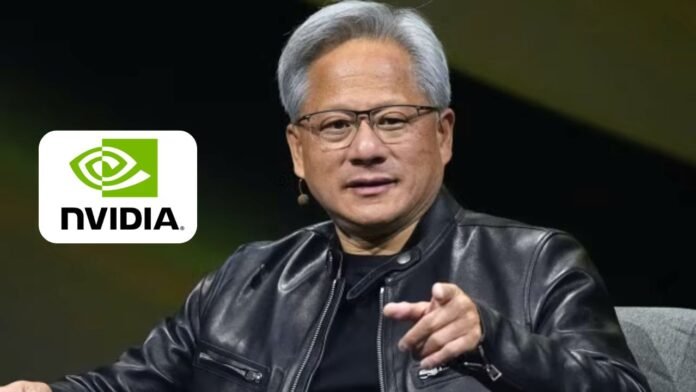A big update is coming from Nvidia CEO Jensen Huang’s China visit! Jensen Huang, who is a big name in the world of AI and GPU, is going to Beijing, and this news is being discussed a lot in tech and geopolitics circles. U.S. senators have sent him a letter, and it contains some very serious things. Are you curious? Let’s break down this news and see what is going on, in simple and straight Hinglish!
Nvidia CEO Jensen Huang’s China Visit: What’s the Plan?
Jensen Huang, CEO of Nvidia, is scheduled to hold a media briefing in Beijing on July 16, 2025, and will also attend the International Supply Chain Expo. In addition, he plans to meet the Chinese Commerce Minister and some key officials. This is his second visit to China this year, and China is a big market for Nvidia, from which it generates a lot of revenue. But this visit is not so simple—the letter from U.S. senators has made it a little controversial.
Letter from U.S. Senators: What is the Concern?
Republican Senator Jim Banks and Democratic Senator Elizabeth Warren wrote a letter to Jensen Huang in which they clearly stated that he should not meet with companies in China that:
- Work with the Chinese military or intelligence
- Undermine U.S. chip export controls
- Are on the U.S. restricted export list
Their concern is that if Jensen meets with such companies, it could legitimize them or provide an opportunity to expose loopholes in U.S. export rules. The letter was sent on July 11, 2025, and mentions U.S. national security. Senators say Nvidia’s powerful GPUs, used to train AI models, could boost China’s military modernization, which is a risk to the U.S.
DeepSeek’s Angle: Why is This Company Controversial?
There’s a big name in this story—DeepSeek, a Chinese AI firm that recently made headlines with its R1 chatbot. DeepSeek created an AI model that competes closely with OpenAI’s GPT models. But why is this company controversial? According to reports, DeepSeek:
- Is working with the Chinese military and intelligence operations
- U.S. Nvidia has tried to use shell companies to bypass export controls
Nvidia’s GPUs, such as the H800 and H20, are used extensively for AI training, and it appears that DeepSeek has indirectly accessed these chips. This is a matter of great tension for U.S. lawmakers, as they believe such chips could enhance China’s military capabilities.
The Tussle Between Nvidia and U.S. Export Controls
Nvidia has a complicated relationship with China. From 2022, the U.S. has imposed strict bans on the export of advanced AI chips (like the H100), causing Nvidia’s China market share to drop from 95% to 50%. Jensen Huang has previously said these restrictions would reduce Nvidia’s revenue by as much as $15 billion. In response, Nvidia has made modified chips for China, like the H20, that fall under U.S. rules, but their performance has not been as powerful.
Jensen said at the May 2025 Computex trade show that U.S. export controls are a “failure” as they have pushed Chinese companies like Huawei to develop their own chips. But now the senators’ letter is further scrutinizing his China visit, so that he does not put U.S. security at risk in any way.
What is Nvidia’s Stand?
An Nvidia spokesperson said that their technology works best on the “U.S. tech stack”, and it sets a “global standard”. He said that there is also a large community of developers in China, and Nvidia is focused on making their tech used worldwide. Jensen also said that he strictly follows U.S. rules, and his China visit is for business and innovation, not for any military agenda.
What Does All This Mean for You?
If you’re a tech fan, this news is a big reminder that the world of AI and chips isn’t just about technology—it also has a bigger connection to geopolitics. Nvidia’s GPUs are shaping the future of AI, and that’s why Jensen Huang’s every move is being watched closely. This visit may lead to the announcement of new chips or partnerships, but after the warning from U.S. senators, it’s clear that Nvidia has to walk a tightrope.










मुझे 500k follows चाहिए